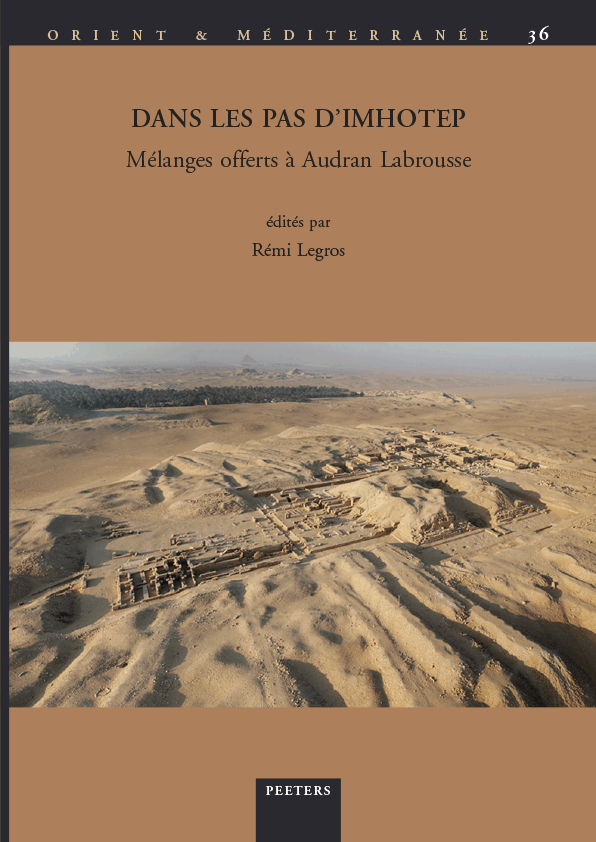

 0
FR
0
FR

Parmi les multiples vies d’Audran Labrousse, celle de
l’architecte-archéologue doit retenir toute notre attention. Homme de
terrain insatiable, il parcourt les chantiers de fouille depuis un
demi-siècle, sillonnant le Proche-Orient et l’Afrique de l’est avec son
regard aiguisé et un sens inné des monuments et des civilisations qu’il
côtoie. De Suse à Sedeinga, de Pétra à Jérusalem, il observe, analyse,
et recense les vestiges des multiples sociétés qui se sont succédé dans
ce croissant si fertile au carrefour de l’Afrique et de l’Asie.
Fort de cette érudition qui le caractérise, c’est à Saqqâra qu’il
trouve le mieux à exercer ses talents d’architecte et d’homme de
terrain. La rencontre avec Jean Leclant et Jean-Philippe Lauer le
convainc de consacrer ses efforts à la restitution des vestiges
monumentaux qui font le renom de cette nécropole royale. Directeur
pendant quarante ans des fouilles de la nécropole de Pépy Ier, il met au
jour le complexe de ce roi et les ensembles des reines qui lui sont
associés.
Cet ouvrage se veut à l’image de ce travailleur
infatigable. Ses amis et collègues présentent ici un témoignage de
reconnaissance et lui offrent un ensemble de contributions qui toutes
rendent hommage à l’œuvre entreprise, par des études archéologiques et
d’histoire, des présentations de monuments ou d’objets inédits provenant
pour l’essentiel de la vallée du Nil.
Among Audran
Labrousse's many lives, that of the architect and archaeologist must be
the focus of our attention. An insatiable hands-on man, he has been
travelling through excavation sites for half a century, criss-crossing
the Near East and East Africa with his sharp eye and an innate sense of
the monuments and civilizations he encounters. From Susa to Sedeinga,
from Petra to Jerusalem, he observes, analyses and inventories the
remains of the many societies that have succeeded one another in this
very fertile crescent, at the crossroads of Africa and Asia.
With
this erudition that characterizes him, it is in Saqqara that he found
the best way to exercise his talents as an architect and a man of
action. His meeting with Jean Leclant and Jean-Philippe Lauer convinced
him to devote his efforts to the restitution of the monumental remains
this royal necropolis is famous for. As the Director of the excavations
of the necropolis of Pepy I for forty years, he uncovered the complex of
this king and the several queens associated with him.
This book is
intended to reflect the image of this indefatigable worker. His friends
and colleagues hereby present a token of their gratitude and offer him a
set of contributions, all of which paying tribute to the work
undertaken, through archaeological and historical studies, presentations
of monuments or unpublished objects, mainly originated from the Nile
Valley.



